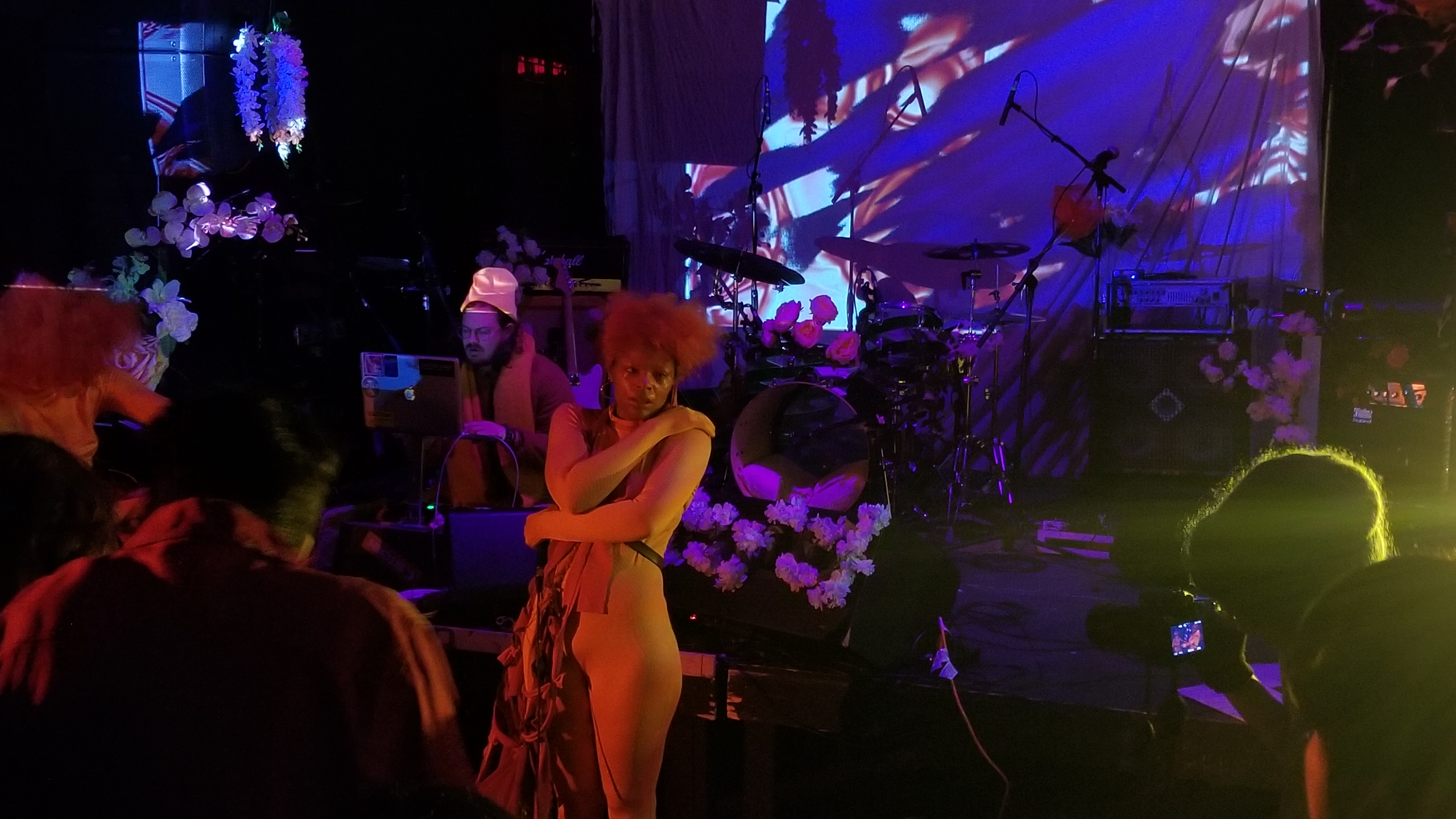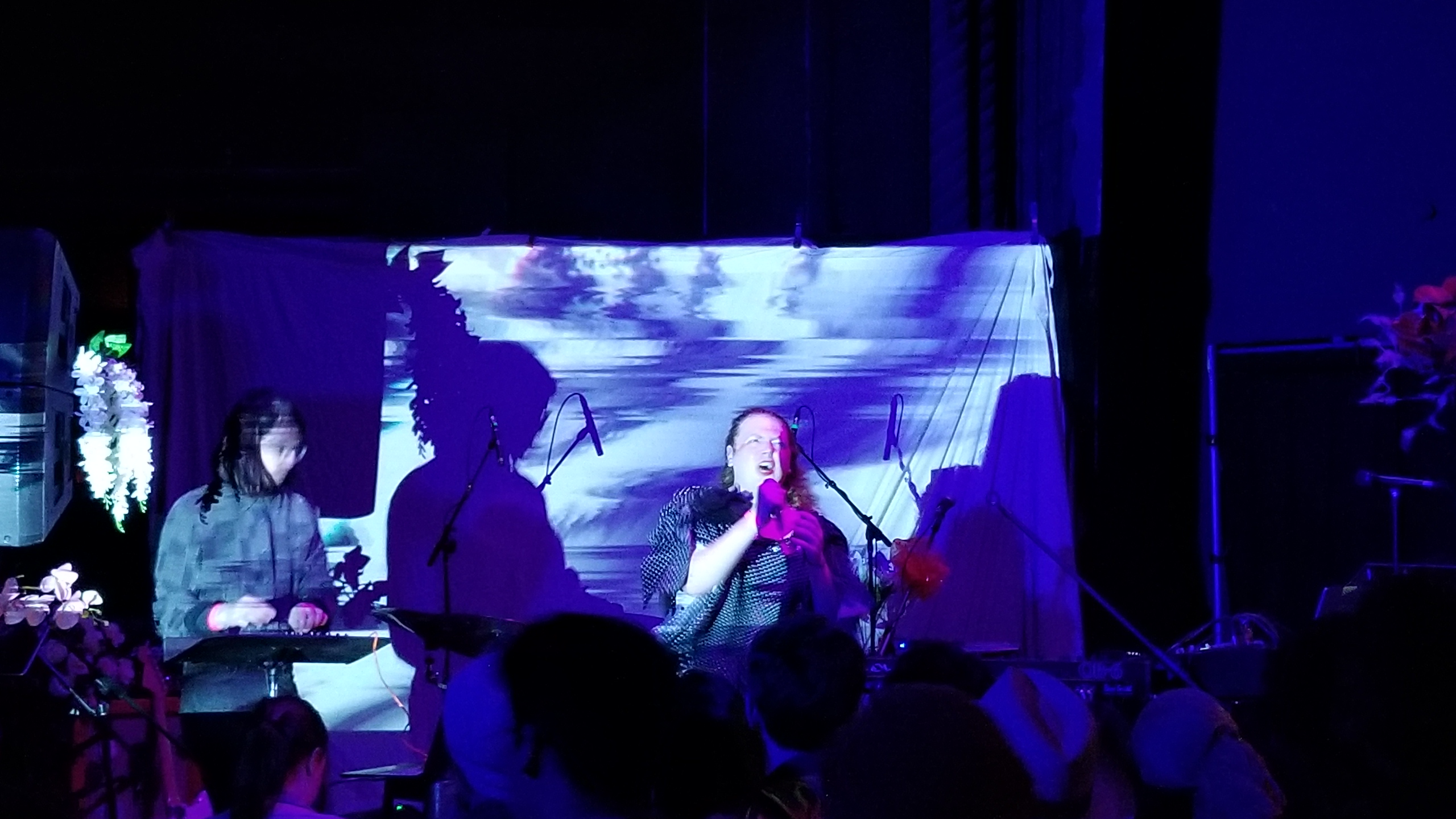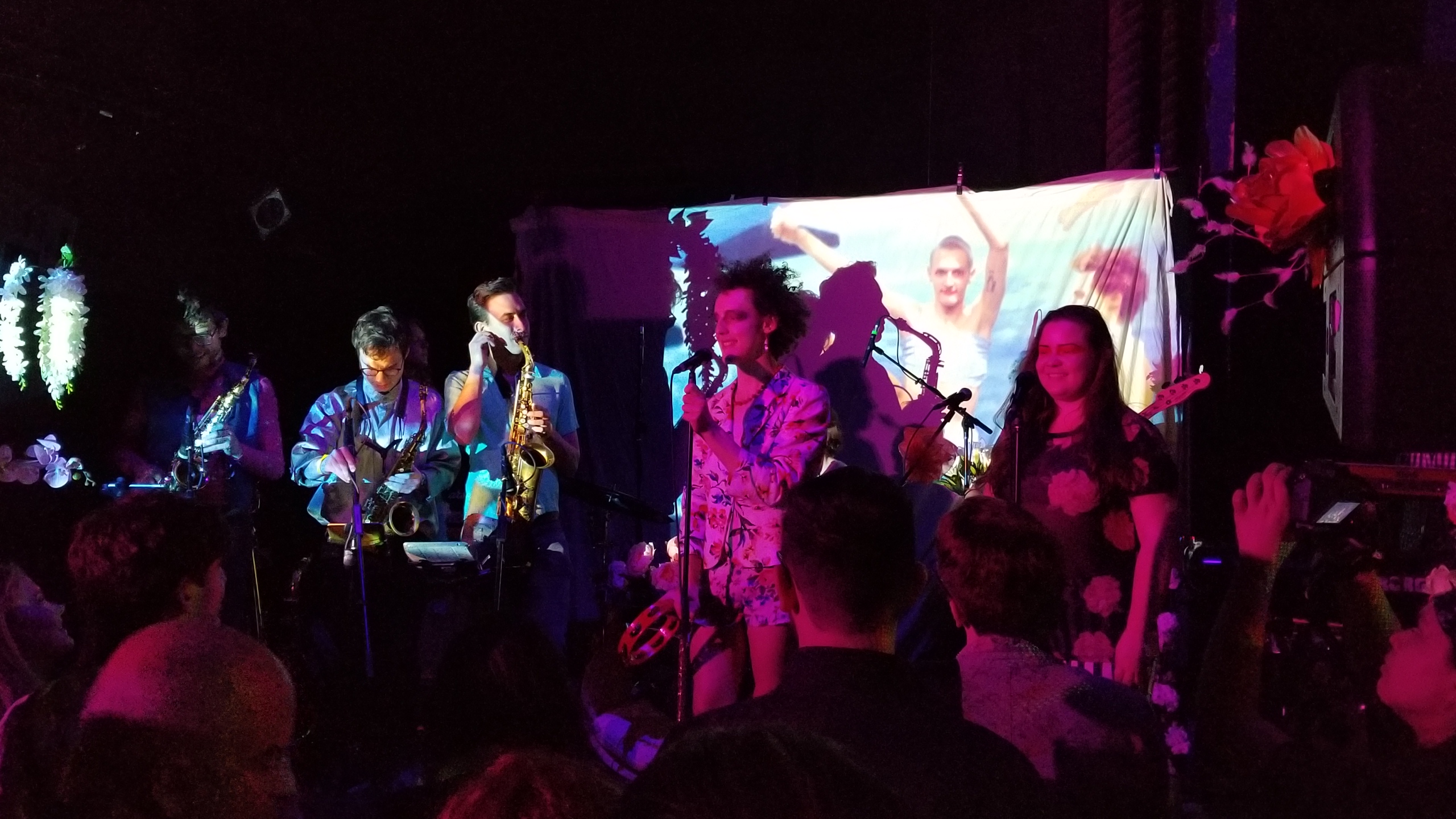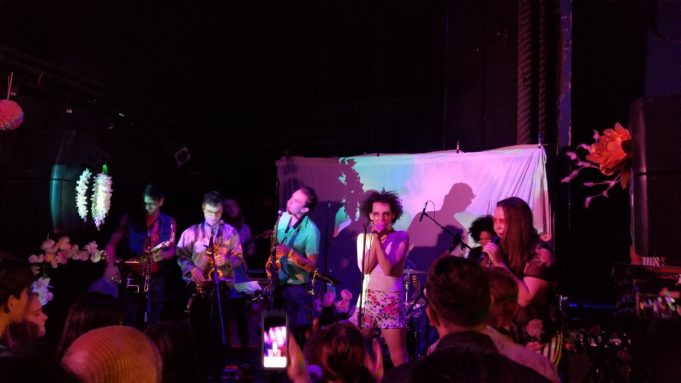Despite my best efforts –– which may have included a few edibles –– I was unprepared for what Dallas-based experimental collective Starfruit delivered during their 40-minute set last Friday at Oak Cliff’s Texas Theatre (231 W Jefferson Blvd, Dallas, 214-948-1546). The band dropped Wild West Combat last week on the esteemed Fort Worth label Dreamy Life Records, and the show was ostensibly a celebration of the album release –– it was also a night that wrung the serotonin out of my brain like a damp towel.
As the show began, a diverse crowd of more than 100 people of all ages and genders filed behind a movie screen into a closely packed but not too crowded area. A psychedelic spectrum of colors bathed the dark space in hues of yellow, blue, and red, while the sound of “Boy” by Book of Love echoed from wall to wall.
Once the music fell silent, Dallas experimental pop artist Mattie slinked onstage alongside a dancer. Both performers were hidden from view, covered head-to-toe by a pliable, opaque orange fabric beneath which they undulated as the words of Buddhist writer Alan Watts pumped over the sound system. As Mattie’s powerful alto burst from deep inside her chest, she moved through the set, slowly peeling off the cocoon of fabric and emerging with her dancer onto the stage in a moving metaphor of personal growth and self-actualization. The performance was reminiscent of Laurie Anderson blended with the essence of Grace Jones –– plus a dash of Bjork.

Dallas’ Llora followed with a set of retro synth-pop that compelled the audience to dance. After two songs, I leaned back and bellowed a revelatory shout of “first-album Ministry” to a couple of my fellow concertgoers, who nodded approvingly in amusement. This was not a criticism, just that Llora’s musical influences seem fairly obvious. It’s synth-wave for those who missed it the first time around, and that’s not a bad thing. The set provided a lively diversion between the visual explosion of Mattie and the art-punk aesthetic of Starfruit.

When I spoke with Starfruit lead singer and songwriter Ava Boehme a few days prior to the show, they were hopeful that the audience would walk away feeling empowered and affirmed by the experience. Boehme thoughtfully curated everything, from the stage props and color scheme to video montages and the bumper soundtrack. The singer spoke of a desire to create an inclusive, heart-opening, familial atmosphere –– something that was lacking in their own early experience as some clubs.
The desire to address that void speaks to why Wild West Combat is a critically important release: There are countless trans, non-binary, and gender non-conforming young people who desperately need role models. They need to see that their outcomes can be positive. As a member of a marginalized community in the public sphere, Ava represents the promise of acceptance of one’s authentic self. It is a heavy burden for anyone, much less an artist, yet Starfruit’s performance traversed those themes with ease, beginning with a video presentation of typically masculine cowboys being gunned down right before the opening notes of “Still a Baby,” an anthemic punk-rock battle cry that rails against labeling children as one gender or the other at birth.
The nine members of this iteration of Starfruit included a tightly wound saxophone section, which burst with dissonance before converging into controlled chaos. The audience mirrored the show onstage, emboldened by Boehme’s calls to interact with and protect one another, as the throng broke out into several mosh pits that ended with Boehme taking a crowd surfing ride in a moment of pure joy. The highlight of the show was Boehme’s acoustic guitar performance of the poignant ballad “Big Armed Truck Driver.” Boehme sounded more confident and self-assured than on the recorded track. Their voice was confident and sanguine. Afterward, as Boehme was rejoined by the saxophone section and bassist for album-closer (minus hidden track) “Song of my Birth,” the full ensemble returned to the stage for a rousing finale.

It can be difficult for some cis people to empathize with the identity struggle experienced by members of the trans, non-binary, and gender non-conforming population. Simply presenting as their authentic selves can place that population in physical danger, a theme that Boehme touched upon several times with a sense of urgency. At one point after encouraging the audience to mosh, Boehme reminded the crowd that Starfruit shows were a place where everyone was protected, contrasting their own experiences at punk shows.
“It wasn’t a very safe place for people like me,” the singer told the audience.
In a text exchange a few days after the event, Boehme told me they were still processing their thoughts, but they also expressed a sense of achievement.
“I thought the show was incredible and absolutely accomplished my goal,” they said.
Dreamy Life Records and Starfruit should be proud. They’ve given the world a salient, timely piece of art.












